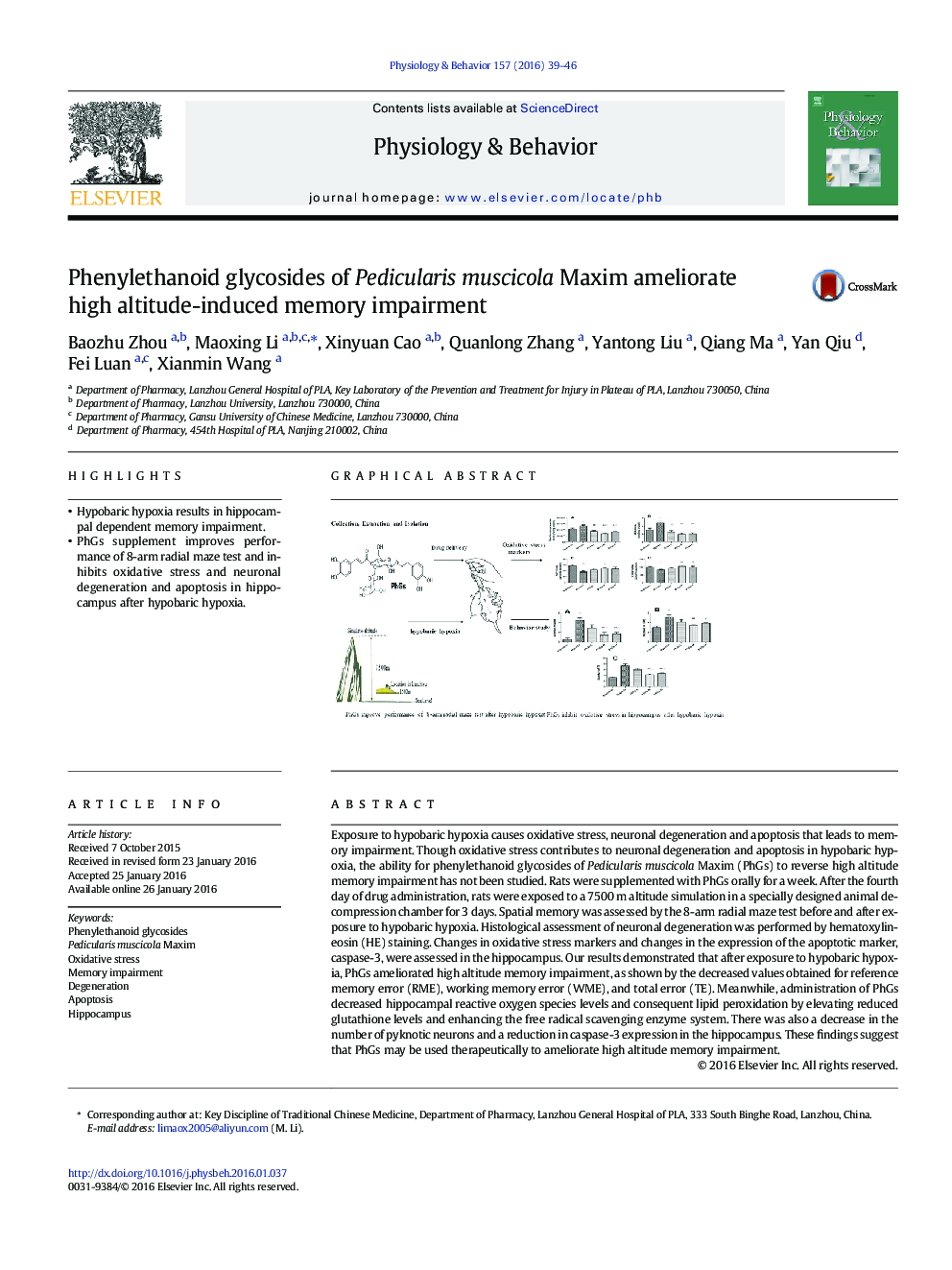| کد مقاله | کد نشریه | سال انتشار | مقاله انگلیسی | نسخه تمام متن |
|---|---|---|---|---|
| 2844004 | 1571161 | 2016 | 8 صفحه PDF | دانلود رایگان |

• Hypobaric hypoxia results in hippocampal dependent memory impairment.
• PhGs supplement improves performance of 8-arm radial maze test and inhibits oxidative stress and neuronal degeneration and apoptosis in hippocampus after hypobaric hypoxia.
Exposure to hypobaric hypoxia causes oxidative stress, neuronal degeneration and apoptosis that leads to memory impairment. Though oxidative stress contributes to neuronal degeneration and apoptosis in hypobaric hypoxia, the ability for phenylethanoid glycosides of Pedicularis muscicola Maxim (PhGs) to reverse high altitude memory impairment has not been studied. Rats were supplemented with PhGs orally for a week. After the fourth day of drug administration, rats were exposed to a 7500 m altitude simulation in a specially designed animal decompression chamber for 3 days. Spatial memory was assessed by the 8-arm radial maze test before and after exposure to hypobaric hypoxia. Histological assessment of neuronal degeneration was performed by hematoxylin-eosin (HE) staining. Changes in oxidative stress markers and changes in the expression of the apoptotic marker, caspase-3, were assessed in the hippocampus. Our results demonstrated that after exposure to hypobaric hypoxia, PhGs ameliorated high altitude memory impairment, as shown by the decreased values obtained for reference memory error (RME), working memory error (WME), and total error (TE). Meanwhile, administration of PhGs decreased hippocampal reactive oxygen species levels and consequent lipid peroxidation by elevating reduced glutathione levels and enhancing the free radical scavenging enzyme system. There was also a decrease in the number of pyknotic neurons and a reduction in caspase-3 expression in the hippocampus. These findings suggest that PhGs may be used therapeutically to ameliorate high altitude memory impairment.
Figure optionsDownload as PowerPoint slide
Journal: Physiology & Behavior - Volume 157, 1 April 2016, Pages 39–46